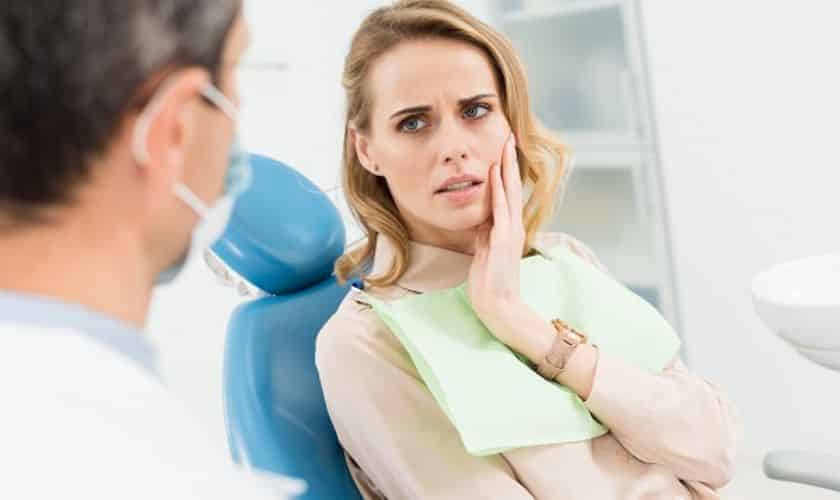Published on September 7, 2023

When dental emergencies strike, knowing how to respond swiftly can make all the difference in preserving your oral health and easing discomfort. For Southside Richmond, VA residents, this guide offers essential emergency dentistry tips to navigate unexpected dental issues with confidence.
Dental emergencies can range from severe toothaches, broken teeth, and lost fillings to more serious issues like abscesses or knocked-out teeth. In this comprehensive guide, we’ll cover practical advice on what to do in these situations, where to find emergency dental care in Southside Richmond, and how to minimize pain and damage until professional help is available.
By following these crucial tips, you can ensure the well-being of your dental health and find peace of mind in times of unexpected dental crises.
Understanding Dental Emergencies
1. Definition of Dental Emergencies:
Dental emergencies refer to situations in which immediate dental care is required to alleviate pain, prevent further damage, or save a tooth. These situations can vary in severity but generally include issues like severe toothaches, broken or chipped teeth, knocked-out teeth, abscesses, and lost fillings or crowns. Recognizing the urgency of these situations is crucial to taking prompt action and seeking appropriate care.
2. Severity and Response Time:
Not all dental problems require immediate attention, but understanding the severity of the issue is vital. Severe pain, uncontrolled bleeding, or a tooth knocked out of its socket demand immediate action within the first hour for the best chance of successful treatment. On the other hand, issues like minor toothaches or a lost filling may not require emergency care but should still be addressed promptly to prevent complications. It’s important to assess the situation and respond accordingly to ensure the best outcome for your oral health.
Preparation for Dental Emergencies
1. Dental Emergency Kit:
It’s prudent for individuals and families to assemble a dental emergency kit. This kit should include essential items that can help manage a dental emergency until professional care is available. Some items to include are:
– Over-the-counter pain relievers like ibuprofen or acetaminophen.
– Sterile gauze pads for controlling bleeding.
– A small container with a lid to store a knocked-out tooth.
– Dental wax to temporarily secure loose braces or sharp wires.
– An emergency contact list with your dentist’s and local emergency dental clinic’s phone numbers.
2. Knowledge and Training:
Being prepared also means having some basic knowledge of how to respond to common dental emergencies. This includes knowing how to:
– Clean and store a knocked-out tooth properly.
– Stop bleeding from the mouth.
– Relieve pain using over-the-counter medication.
– Temporarily secure a broken tooth or loose dental appliance.
– Recognize when an emergency requires immediate professional attention.
Immediate Actions During a Dental Emergency
1. Contact a Dental Professional ASAP:
In the event of a dental emergency, the first and most crucial step is to contact a dental professional promptly. Whether it’s your regular dentist or an emergency dental clinic, getting in touch with a dental expert is essential. They can provide guidance over the phone, assess the severity of the situation, and advise you on the next steps. In cases of severe pain, a knocked-out tooth, or profuse bleeding, it’s best to seek professional help immediately.
2. Manage Pain and Bleeding:
While waiting for professional care, it’s important to manage pain and bleeding effectively. Rinse your mouth with warm water to clean the area, and use sterile gauze or a clean cloth to apply gentle pressure to any bleeding areas. Over-the-counter pain relievers like ibuprofen or acetaminophen can help alleviate pain temporarily, but it’s essential to follow dosage instructions carefully. Avoid placing aspirin directly on the affected area, as it can cause tissue damage.
Finding Emergency Dental Care in Southside Richmond
1. Local Dental Clinics with Emergency Services:
Southside Richmond residents should be aware of local dental clinics that offer emergency services. Compile a list of such clinics, including their contact numbers and addresses. Many dental offices have specific hours or dedicated phone lines for emergencies. It’s advisable to save these contacts in your phone or have them readily accessible in case of a dental emergency.
2. Local Hospitals and Urgent Care Centers:
In situations where you can’t reach a dentist immediately or if the dental emergency is particularly severe (e.g., jaw fractures or uncontrollable bleeding), consider seeking help from a local hospital or urgent care center. They can provide initial stabilization and pain relief. However, it’s important to follow up with a dentist for specialized dental care after visiting a hospital or urgent care facility.
Preventing Dental Emergencies
1. Maintain Regular Dental Check-Ups:
Regular dental check-ups are a cornerstone of preventive care. By visiting your dentist at least twice a year, potential dental issues can be detected early and addressed before they become emergencies. These check-ups also include professional cleanings, which can help prevent issues like gum disease and tooth decay.
2. Practice Good Oral Hygiene at Home:
A strong oral hygiene routine at home is crucial in preventing dental emergencies. This includes:
– Brushing your teeth at least twice a day with fluoride toothpaste.
– Flossing daily to remove food particles and plaque between teeth.
– Using an antimicrobial or fluoride mouthwash as recommended by your dentist.
– Avoiding excessive consumption of sugary or acidic foods and drinks that can erode enamel.
Source : American Dental Association (ADA)
In conclusion, being prepared for dental emergencies is paramount for Southside Richmond, VA residents. By assembling a dental emergency kit, gaining essential knowledge, and knowing where to find professional help, you can safeguard your oral health. Additionally, practicing good oral hygiene and attending regular dental check-ups can significantly reduce the likelihood going for emergency dentistry. Remember that swift, informed action can make a vital difference in preserving your smile and well-being.
